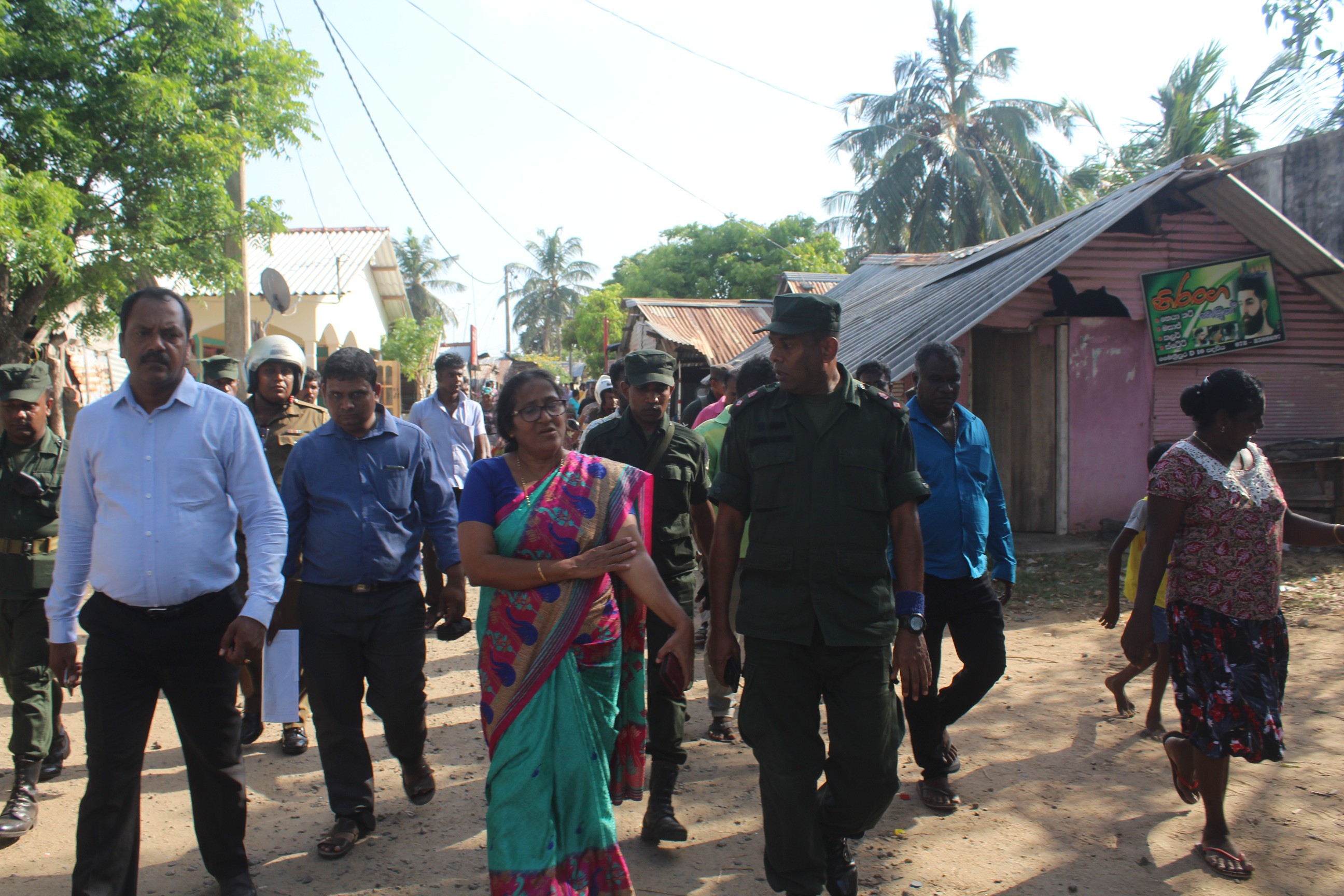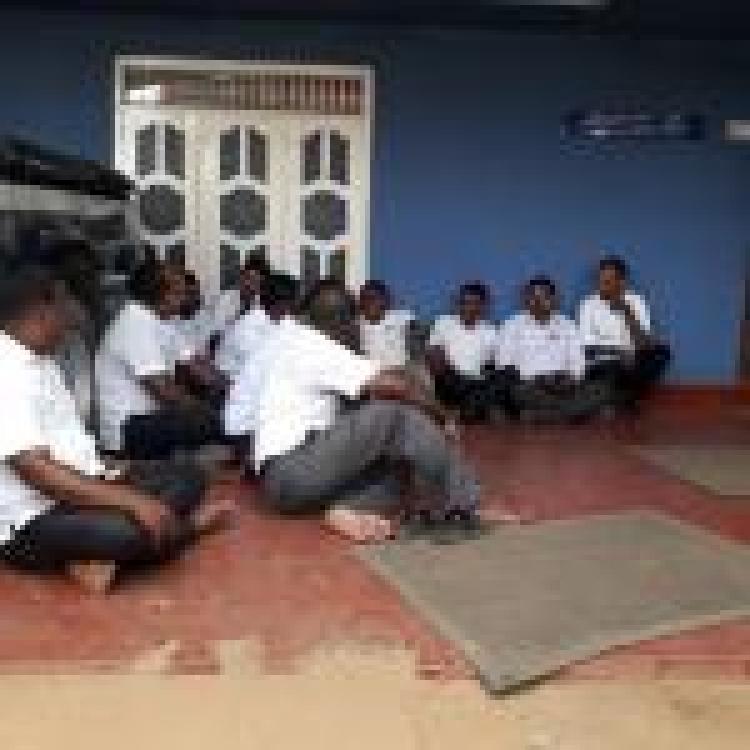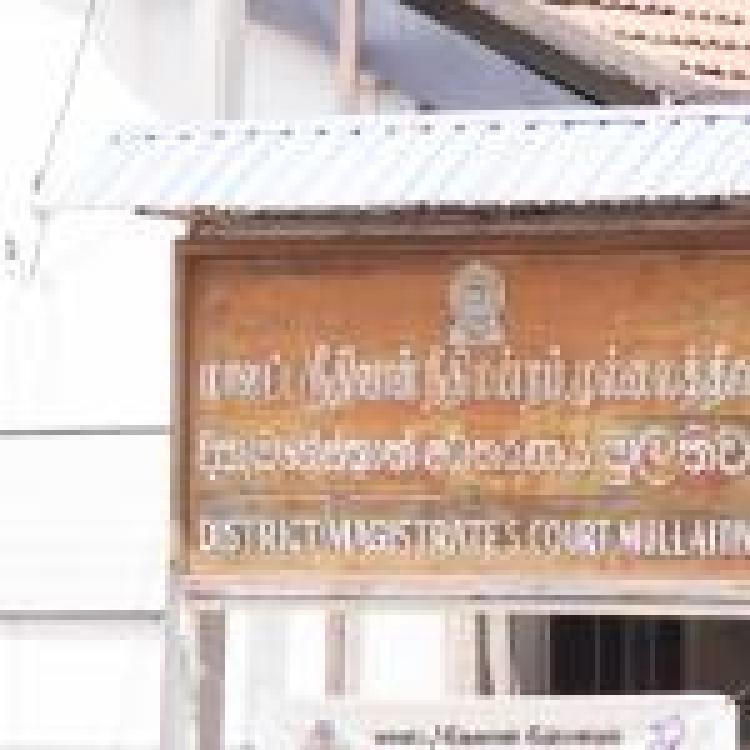Tamil politicians have objected to the approval of a housing scheme for Sinhalese settlers in Mullaitivu on what several have said is Tamil-owned land. The original owners of lands around the Kokkilai Lagoon were evicted by the Sri Lankan army and most are too scared to come forward due to the hostilities in the area between Sinhalese and local Tamils, one politician said.
Sinhalese settlers have been agitating for a housing scheme in the area in which they claim they were promised houses in the 1980s. A foundation laying ceremony was reportedly planned to take place on May 11 but was stopped by the Mullaitivu District Secretariat, Karaithuraipatru (Maritimepattu) Divisional Secretariat and the TNA MP Shanthi Sriskantharajah.
However, after protests by the Sinhalese settlers, the District Secretariat along with several other government officials surveyed the lagoon area and approved for 62 homes to be built on 6 perches of what was claimed to be state land.
Shanthi Sriskantharajah MP however refuted the claims, stating that the lands surrounding the Kokkilai lagoon were owned by Tamil families whose deeds dated back to British colonial times. Ms Sriskantharajah also noted that the lands where the settlers had built temporary housing were cultivation lands on which it is legally prohibited to build homes.
“We cannot build houses for those illegally settled in lands belonging to Tamil people,” she said. “The Tamils could not stop them from settling down in those lands at that time, because of the war. Now that the war is over, the Tamils are asking for their lands to be given back. But instead the National Housing Development Authority is attempting to grant a housing project for the illegal settlers. Yet, Tamils have British era deeds for those lands. How could those lands be given to the settlers? So, I took measures to stop it from happening. This is how they have also managed to seize Manal Aru, our native land,” said Shanthi Sriskantharajah.
Former Northern Provincial Council member T Ravikaran also objected to the scheme’s approval, naming six individuals (names omitted) whom he knew to be the owners of the allocated land.
“The Tamil people who lived there were evicted in 1984 after a sudden announcement by the army,” Ravikaran said. “The fact that the Sinhalese people who were settled there by encroaching on those lands after the sudden eviction of the Tamils, lived in the lagoon area with the army’s protection is an irrefutable truth.”
Also mentioning a Buddhist shrine constructed in the area, on land belonging to three Tamil families, Ravikaran said that one owner had come forward to file an objection while the others did not come forward as they feared that something might happen to them if they ask for their lands to be given back to them in the current situation.



